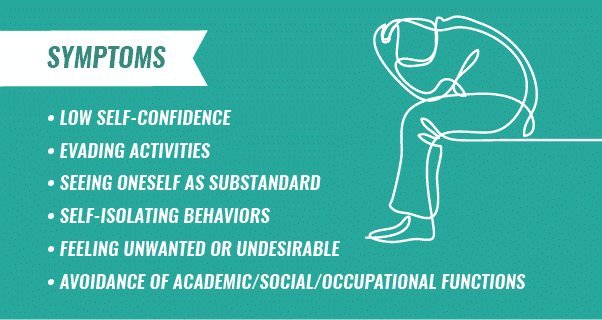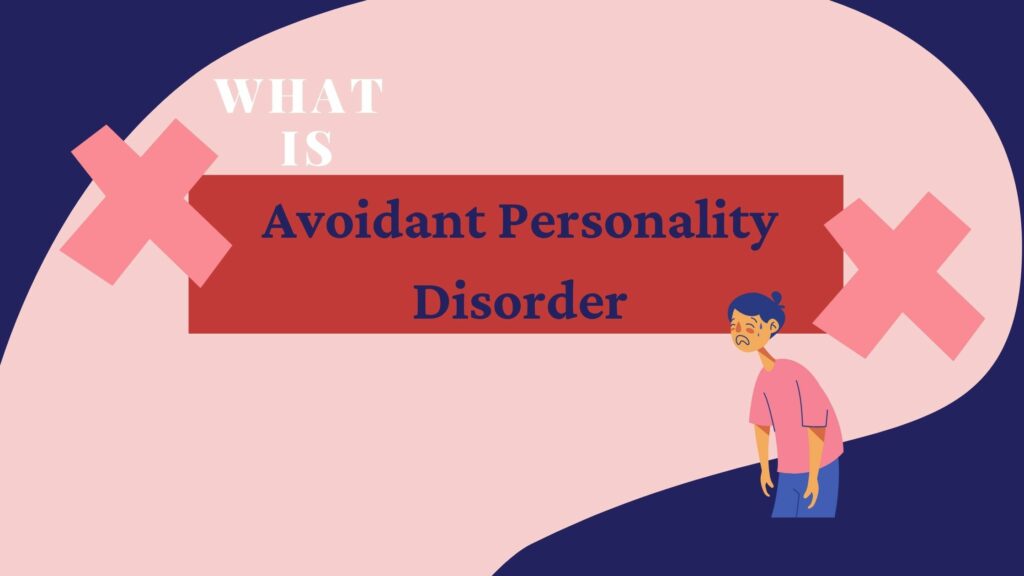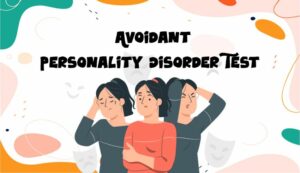What is an avoidant personality disorder? What causes it? How does it affect someone’s life? Can anything be done for those who suffer from it? These are just some of the questions that this article will answer. To learn more about this condition, you should read on. You will find out what causes it, what the symptoms are, how to diagnose it and how to treat it. If you have someone in your family with this disorder, there are things you can do for them too.
Contents
- 1 Understanding Avoidant Personality Disorder
- 1.1 Types Of Avoidant Personality Disorder
- 1.2 Stages Of Avoidant Personality Disorder
- 1.3 Symptoms of Avoidant Personality Disorder
- 1.4 Causes Of Avoidant Personality Disorder
- 1.5 Diagnosis Criteria For Avoidant Personality Disorder
- 1.6 Treatment For Avoidant Personality Disorder
- 1.7 Tips To Deal With It
- 1.8 Helping Someone With Avoidant Personality Disorder
- 1.9 Facts About Avoidant Personality Disorder
- 1.10 Case study on Avoidant Personality Disorder
- 2 Conclusion
Understanding Avoidant Personality Disorder
An avoidant personality disorder is a long-term condition that can make you feel shy like you are not good enough, or sensitive. People might not understand why they don’t go to work meetings with many people. It can be difficult to speak at a staff meeting with other people present. Because of this, they might feel like their ideas are not good enough. People with this disorder might find it hard to make friends. They don’t want other people to know they have the disorder and think less of them.
Types Of Avoidant Personality Disorder
There are three types of avoidant personality disorder. They include:
The fearful type, where you think that other people will be aggressive and mean to them and pick on them or make fun of them. You might not like it when someone tries to be your friend. They might hurt you.
The ashamed type, which is where you think that you are not good enough or that there’s something wrong with you. In this sentence, “other people” can be renamed to “people around me.” “You might feel like you’re a burden to people and they would be better off without you.”
The social isolation type, where you don’t really have any friends and don’t want any because it makes you feel like you’re not good enough. You feel that you are different and other people might not want to be around you because of it.
Stages Of Avoidant Personality Disorder
- The first stage is the beginning where a person doesn’t have any symptoms.
- The second phase is when they start to feel shy and not good enough around other people.
- The third phase is when they don’t want to go out with other people or speak in front of them because of how they feel about themselves.
- The fourth phase is when they start to avoid relationships and stop going out.
- The fifth phase is when they become reclusive and don’t leave the house much at all.
Insurance companies will not pay for treatment unless there are symptoms so it’s important for a person with this disorder not to let it go too far before receiving help from a therapist or counselor who specializes in this disorder.
Symptoms of Avoidant Personality Disorder

If you or someone in your family has an avoidant personality disorder, you should know the symptoms. They may avoid other people or try to keep their distance from them. People are afraid to be themselves because they are worried about what others will think. They don’t want people to reject them, or look down on them. If you have one of these personality types, it can be hard for you to meet people and talk to them. You might keep your distance from people. This is because you are afraid they will not like you or judge you. You might be fine with keeping an online friendship but would never meet that person in real life because of what other people think about them. They don’t want the world to know how little experience they have talking to others face-to-face.
If someone you know has an avoidant personality disorder, there are ways they can get past it. One of the main ways to treat this condition is through cognitive behavioral therapy (CBT). This form of treatment helps people deal with certain situations they might face like public speaking by changing the way they think about it. Medication might also help people with this disorder, but only if their symptoms are severe.
People with AVPD will typically display a number of symptoms, including:
- Feeling socially anxious and uncomfortable around others
- Feeling inferior to others and believing that they are not good enough in any way
- Having a strong desire to fit in and be like everyone else but believing that they never can
- Being preoccupied with their own flaws and feeling ashamed of themselves for being the way they are
- People can feel lonely even when they are around other people. This is because other people might not understand them or want to be friends with them.
- They will do anything it takes to avoid being rejected or abandoned by other people.
Causes Of Avoidant Personality Disorder
There is no one cause of avoidant personality disorder. Some possible causes include:
- Genetics: It’s believed that some people may be more prone to developing AVPD due to their genes.
- Environmental factors: People who have experienced neglect or abuse during childhood are more likely to develop AVPD.
- Brain chemistry: People with AVPD may have an imbalance in their brain chemicals that contributes to the disorder.
Diagnosis Criteria For Avoidant Personality Disorder

The DSM-IV criteria for Avoidant Personality Disorder are:
A. A pervasive pattern of social inhibition, feelings of inadequacy, and hypersensitivity to negative evaluation, beginning by early adulthood and present in a variety of contexts, as indicated by four (or more) of the following:
- Avoids occupational activities that involve significant interpersonal contact, because of fears of criticism, disapproval, or humiliation
- Is unwilling to get involved with people unless certain of being liked
- Shows restraint within intimate relationships because of the fear of being shamed or ridiculed
- Is preoccupied with doubts about own worthiness and attractiveness
- Is reluctant to take personal risks or to engage in new activities because they may prove embarrassing
- Views self as socially inept, personally unappealing, or inferior to others
- Is unusually reluctant to take criticism or blame at work (not due to anxiety associated with performance)
B. Does not occur exclusively during the course of Schizophrenia, a Mood Disorder With Psychotic Features, another Psychotic Disorder, or a Pervasive Developmental Disorder.
C. Causes clinically significant distress or impairment in social, occupational, or other important areas of functioning.
D. Is not due to the direct physiological effects of a substance (e.g., a drug of abuse, a medication) or another general medical condition (e.g., head injury).
Avoidant Personality Disorder is a condition that is marked by extreme shyness and feelings of inadequacy. People with Avoidant Personality Disorder are people who are afraid of being judged. They want to avoid social situations. They may also have difficulty forming close relationships, out of fear that their partners will not like them. People with Avoidant Personality Disorder may also have feelings of inferiority and be overly sensitive to criticism.
Treatment For Avoidant Personality Disorder
There is no one-size-fits-all approach to treatment for Avoidant Personality Disorder. However, some common treatments include cognitive-behavioral therapy (CBT) and medication.
- Cognitive-behavioral Therapy: Cognitive-behavioral therapy (CBT) is a type of psychotherapy that deals with the current situation and relationships. It involves helping people change their thoughts, emotions, and behaviors.
- Medication: There are a few different medications that may be prescribed for people with Avoidant Personality Disorder. These include antidepressants and antipsychotics. It is important to seek professional help if you think you or someone you know may have Avoidant Personality Disorder. Treatment can be very helpful in improving quality of life.
Tips To Deal With It
We all sometimes feel shy and might even avoid certain social situations.
- For people with Avoidant Personality Disorder, these feelings are intense and they become a major part of their life.
- It can be helpful to remember that you are not alone in dealing with the way you think or feel. There are many other people who have felt socially awkward at times.
Furthermore, if you are struggling with Avoidant Personality Disorder, it is important to seek help from a mental health professional. There are different treatments that can be very helpful in improving the quality of life for people suffering from this disorder.
Helping Someone With Avoidant Personality Disorder

People with Avoidant Personality Disorder may be very sensitive to criticism.
- It can help if you try not to make negative comments about the person’s behavior or performance in social situations.
- If someone close to you has this disorder, it might help them to talk with a mental health professional. They can help people work through their feelings.
Avoidant Personality Disorder can have a significant impact on a person’s life and their relationships with other people.
It is important to seek help from someone who knows about this disorder so that you or your loved one can get the treatment they need in order to improve the quality of life for both yourself and others around you.
Facts About Avoidant Personality Disorder
- Avoidant Personality Disorder is a condition in which people have feelings of inadequacy and are very sensitive to criticism.
- People with this disorder want to avoid social situations because they fear that others will judge them or think poorly of them.
- There are different treatments for Avoidant Personality Disorder including cognitive-behavioral therapy (CBT) and medication.
- Avoidant Personality Disorder is a problem. You can get help with that by going to therapy or using medications. It will make your life better and the person’s close to you.
Furthermore, Avoidant Personality Disorders are feelings of inadequacy and extreme shyness in social situations. People with this condition may also have difficulty forming close relationships.
Case study on Avoidant Personality Disorder
John is a 34-year-old man who has been diagnosed with Avoidant Personality Disorder. He reports that he has always been shy and uncomfortable in social situations. He was worried when he was a child about making mistakes or doing something wrong. This led him to avoid social activities and interactions whenever possible.
John’s symptoms have persisted into adulthood. He says that he feels very anxious when he is in social situations and often feels like he is being judged. He also finds it difficult to trust others, as he fears that they will eventually abandon or reject him. John has few close relationships and often feels isolated from those around him.
John has been diagnosed with Avoidant Personality Disorder and is currently receiving treatment. He has found that therapy, in particular cognitive-behavioral therapy (CBT), has been helpful to him. His therapist helps give him strategies for coping when he feels anxious or is anticipating rejection from others.
John is also taking treatment with antidepressant medication. John is working with a therapist to help him talk about his feelings. It can be difficult at times, but he is learning.
Conclusion
This blog post has discussed the symptoms and treatment of avoidant personality disorder. Some people may feel judged and sad around other people. People who feel like others are passing judgments may also feel sad or anxious. People who have these disorders can take help by talking to a therapist or taking medicine. The information in this article may help you if someone you know has an avoidant personality disorder. You’ll know what to expect and can better support your loved one. If you read this and still have questions, please do not hesitate to reach out.
If you are looking for affordable Online Counseling MantraCare can help: Book a trial therapy session



